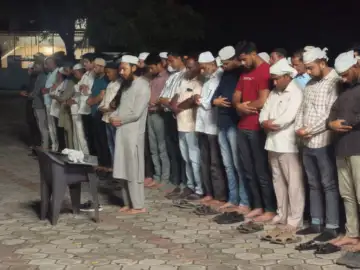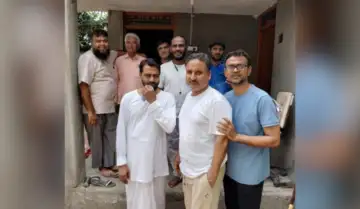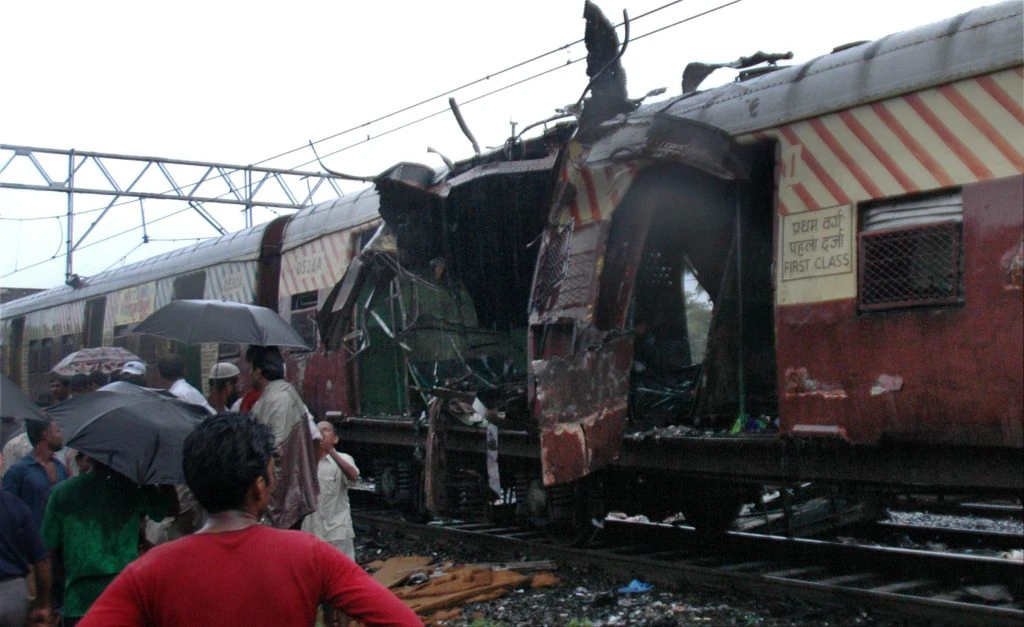Mumbai: After 19 years of prolonged incarceration, on July 21, the Bombay high court previously convicted under the Maharashtra Control of Organised Crime Act (MCOCA) in the July 11, 2006, train blast case.
Five of these men were on death row, one of whom died while in jail. Seven others were given life sentences by the trial court. While the prison authorities released them from jail the same day, the state government appealed the acquittal in the Supreme Court.
The apex court, upon hearing the state’s apprehension that the Bombay high court’s judgment could set a “precedent” in other ongoing MCOCA cases in Maharashtra,
The Supreme Court bench, comprising Justices M.M. Sundresh and N.K. Singh, observed:
“We have been informed that all the respondents have been released, and there is no question of returning them to prison. However, noting the submission made by the SG [Solicitor General Tushar Mehta] on the question of law, we are inclined to hold that the impugned judgment shall not be treated as a precedent. To that extent, there is a stay of the impugned judgment.”
As the state government did not seek the return of the 11 men (out of 12, as one died in jail) to prison, and the apex court was not inclined to re-incarcerate them, the men are now free. The appeal may take months, perhaps years, before it is heard and decided upon. Thus, their freedom will not be curtailed by law, at least in the near future.
However, the stay order is not restricted to their freedom; it has larger implications for pending MCOCA cases. To understand the extent of the impact on other MCOCA cases, it is essential to examine the many aspects the judgment addressed.
The serial train blasts claimed 189 lives and close to 800 others were injured in the attack. The names of those acquitted by the high court after close to two decades are Kamal Ansari, Mohammad Faisal Ataur Rahman Shaikh, Ehtesham Qutubuddin Siddiqui, Naveed Hussain Khan and Asif Khan, Tanveer Ahmed Mohammed Ibrahim Ansari, Mohammed Majid Mohammed Shafi, Shaikh Mohammed Ali Alam Shaikh, Mohammed Sajid Margub Ansari, Muzammil Ataur Rahman Shaikh, Suhail Mehmood Shaikh and Zameer Ahmed Latiur Rehman Shaikh. Kamal Ansari died in 2021.
 Some of the men acquitted in the 7/11 train blasts case after their release. Photo: By arrangement.
Some of the men acquitted in the 7/11 train blasts case after their release. Photo: By arrangement.
Here are a few crucial legal challenges that will be faced in other cases relating to MCOCA.
The Bombay high court thoroughly addressed the issue of the Maharashtra state Anti-Terrorism Squad’s (ATS) decision to invoke MCOCA without fulfilling a mandatory statutory precondition. Defence lawyer Nitya Ramakrishnan, in her written submission, pointed out that “the invocation of MCOCA has some preconditions that were not met in this case.”
For the invocation of MCOCA, there must be at least two previous chargesheets, the offences should be punishable with imprisonment of three years or more, and a competent court should have taken cognisance of these chargesheets, which must have been filed in the 10 years preceding the invocation of MCOCA. Ramakrishnan noted that the Supreme Court has added the condition that not every offence carrying a minimum punishment of three years qualifies; only crimes of a certain nature, such as smuggling, narcotics, or money laundering, can be a basis for invoking MCOCA. However, in the train blast case, MCOCA was invoked based on two FIRs against one of the accused, Asif Shaikh. The police had not filed chargesheets for those two FIRs at the time MCOCA was invoked in the train blast case.
The high court judgment takes serious note of the process followed by the sanctioning officer (in this case, the then Deputy Inspector General S.K. Jaiswal) in granting sanction without considering “the relevant facts, material, and evidence.” “In the circumstances, we have no hesitation in holding that the relevant and material documents were not supplied to Shri Jaiswal before the grant of prior approval by him,” the judgment reads.
This procedural flaw is not unique and has frequently vitiated the invocation of the MCOCA law. Now, with the Supreme Court staying the use of the high court’s verdict in other MCOCA matters, it will pose challenges in other cases.
Defence lawyer Yug Mohit Chaudhry had raised a serious issue – not examining Jaiswal as a witness – in the case. Chaudhry’s argument was that the prosecution had deliberately “prevented” Jaiswal’s evidence from coming on record on a pretext that he was travelling abroad and would not be available for two months. The prosecution’s examination of witnesses continued well past the two months period, yet Jaiswal was not examined.
One of the brutal truths of custodial torture that the trial court judge Y.D. Shinde had overlooked at the time of delivering the judgment in 2015 was taken up seriously by the Bombay high court. The 12 men acquitted by the high court and Abdul Wahid Shaikh, who after nine years of incarceration was acquitted by the trial court, had repeatedly brought to both the jail administration and judiciary’s notice that they had suffered prolonged torture and that their confessions were extracted under duress.
 Some of the men acquitted in the 7/11 Mumbai train blasts case. Photo: Innocence Network.
Some of the men acquitted in the 7/11 Mumbai train blasts case. Photo: Innocence Network.
These confessions, that helped the prosecution build their case, and later, conviction, before a trial court, were all retracted as soon as the men were moved from police custody to jail custody. The Bombay high court relies seriously on this particular fact in the case.
Retired justice and defence lawyer in this case S. Muralidhar had pointed to the many severe and visible injuries that the accused persons had sustained and how their confessions were extracted after extreme brutalisation. The Bombay high court, in the judgment, notes that custodial torture vitiates a confession. The high court also looked at “voluntariness” in particular in obtaining these confessions and observed: “The last plank of the evidence on which the prosecution has placed heavy reliance was the confessional statements. However, on all the tests relating to voluntariness and truthfulness of the confessional statements, the prosecution failed.”
The deliberation around the issue of confession and the ways adopted by the investigating agencies in obtaining them were critical to the High Court judgment. But with the Supreme Court now staying the judgment, it no longer is available as a “precedent” in other cases pertaining to MCOCA law.
Among the battery of lawyers who built the defence in this case and ensured the incarcerated men were finally freed, are senior counsel S. Nagamuthu, Payoshi Roy, Abdul Wahab Khan, Sharif Shaikh, Stuti Rai, and others.
The serial blasts occurred on one of the most crowded railway lines. The men were accused of not just conspiring but also assembling and planting the seven bombs in different trains. The prosecution had claimed that there were multiple passengers who were eyewitnesses to the crime and had seen the accused persons committing the crime. They had come forward soon after the incident and their statements were recorded by the police immediately. But these crucial eye witnesses – the train passengers – were neither called as witnesses or called for identification parades immediately. But strangely, the police had conducted their identification parades over four months after they came forward as witnesses. The high court found this approach unreliable.
The prosecution’s case was that the men had undergone training, were part of several conspiracy meetings and had carried out reconnaissance in the city, before the actual execution of the terror blast. And these claims were based on the Call Data Records (CDR) of the accused persons. Strangely, the CDRs were never provided to the accused person or brought before the court. Advocate Chaudhry had argued that “among all the issues where the defence has been curtailed and the right to a fair trial has been severely compromised, the most egregious and far-reaching violation is the destruction of the Call Detail Records (CDR)”. The high court, says, “…[T]here is no single evidence brought by the prosecution on record, we are of the opinion that, in the present case, the reluctance of prosecution to bring the CDRs on record and destruction of the same raises an adverse inference against the prosecution.”
On the point of handling electronic evidence, especially the CDRs, these were important observations, but the Supreme Court’s stay poses challenges for the defence lawyers handling the other cases under the MCOCA law.
